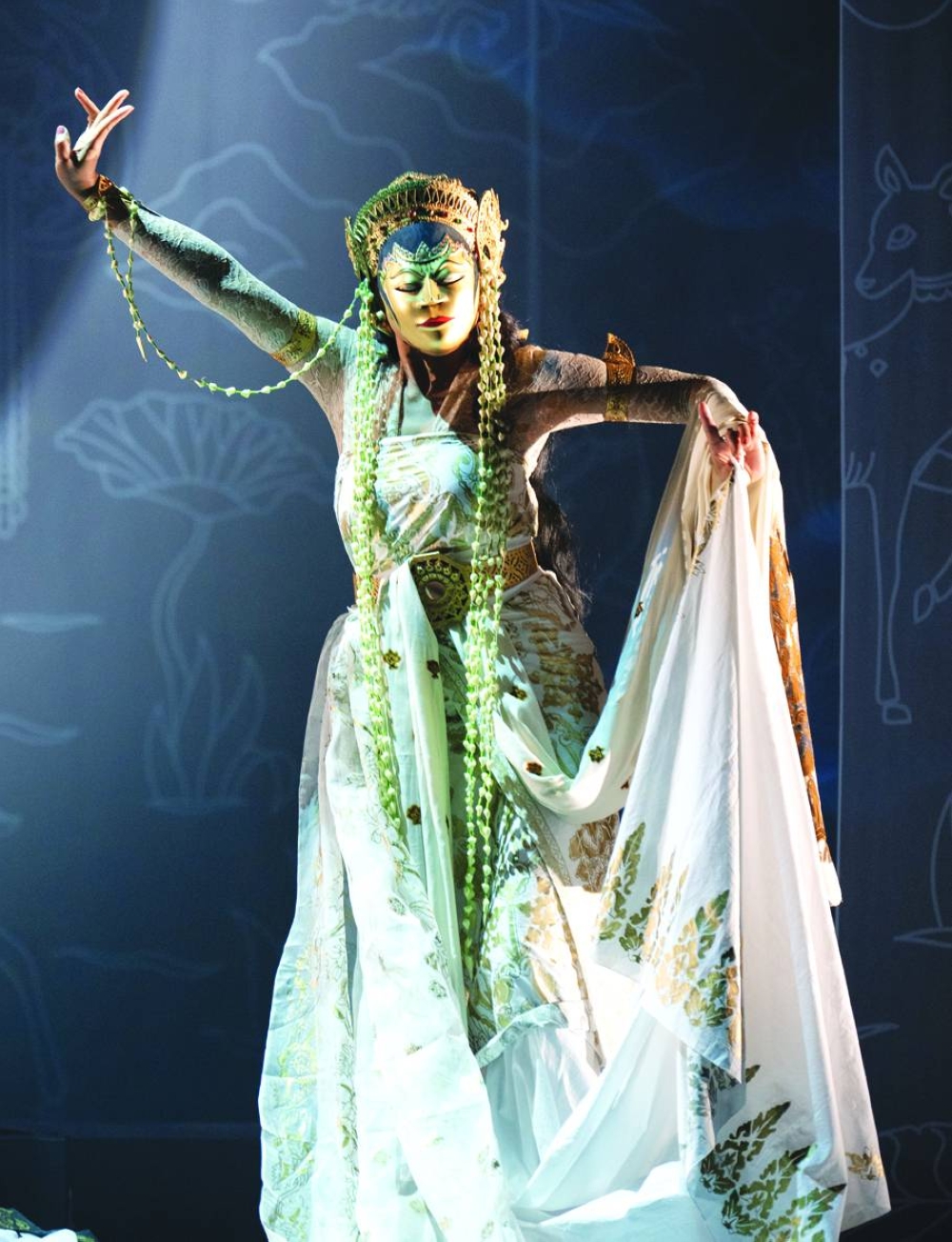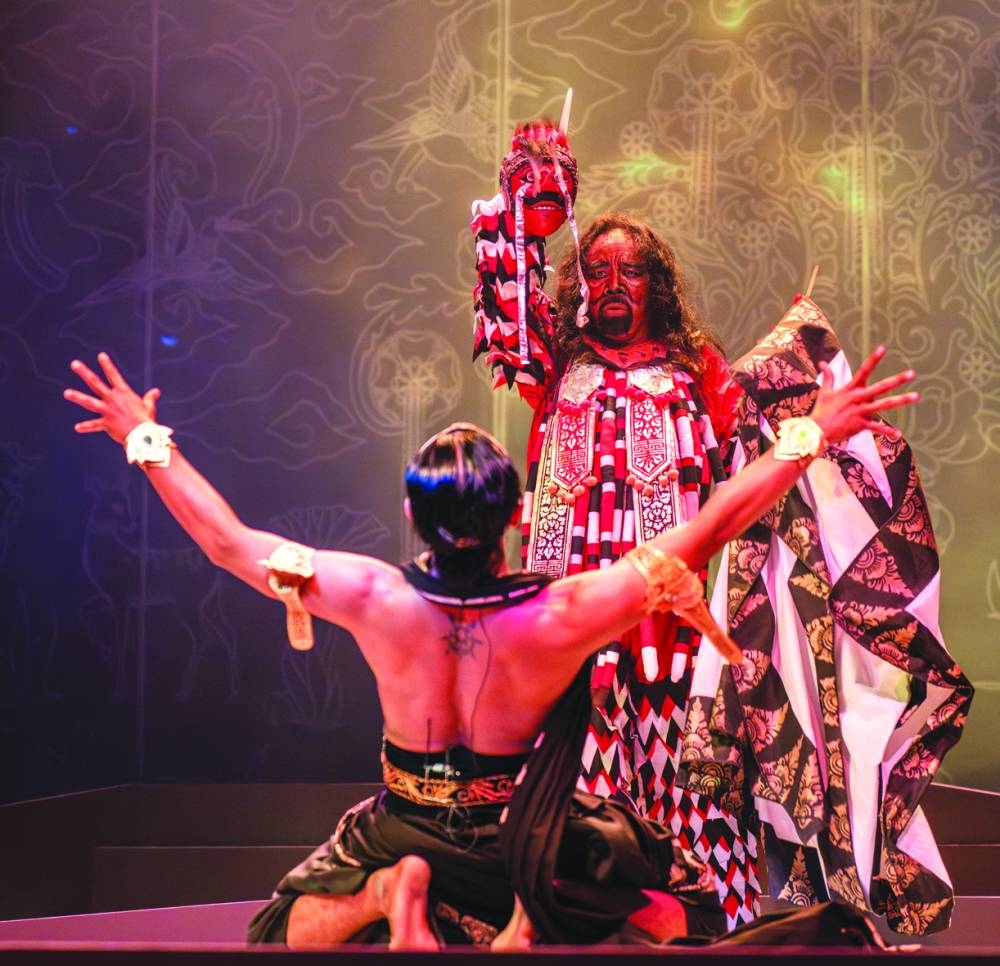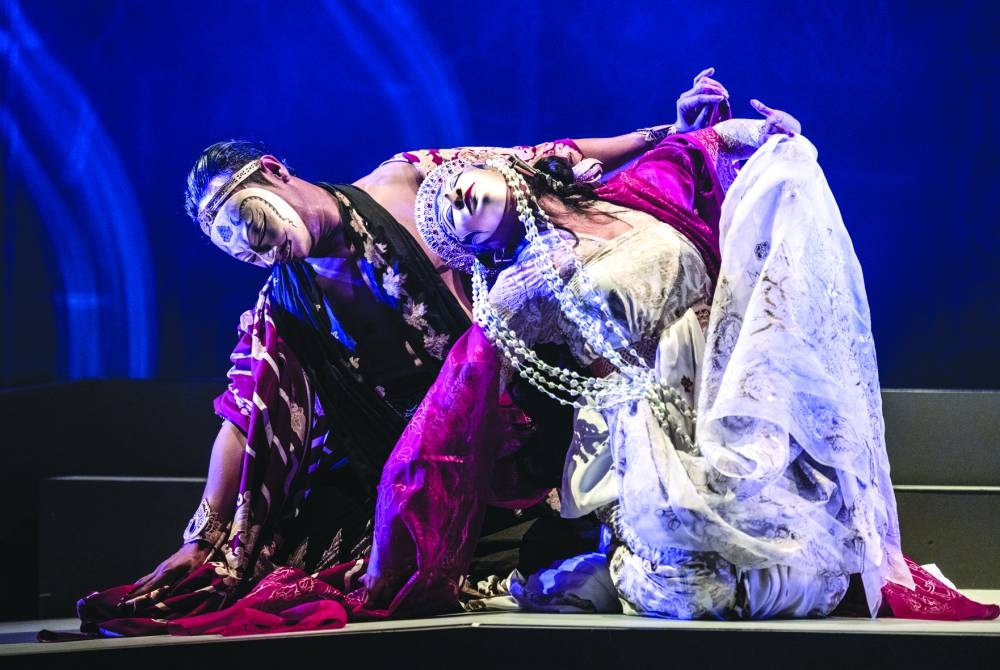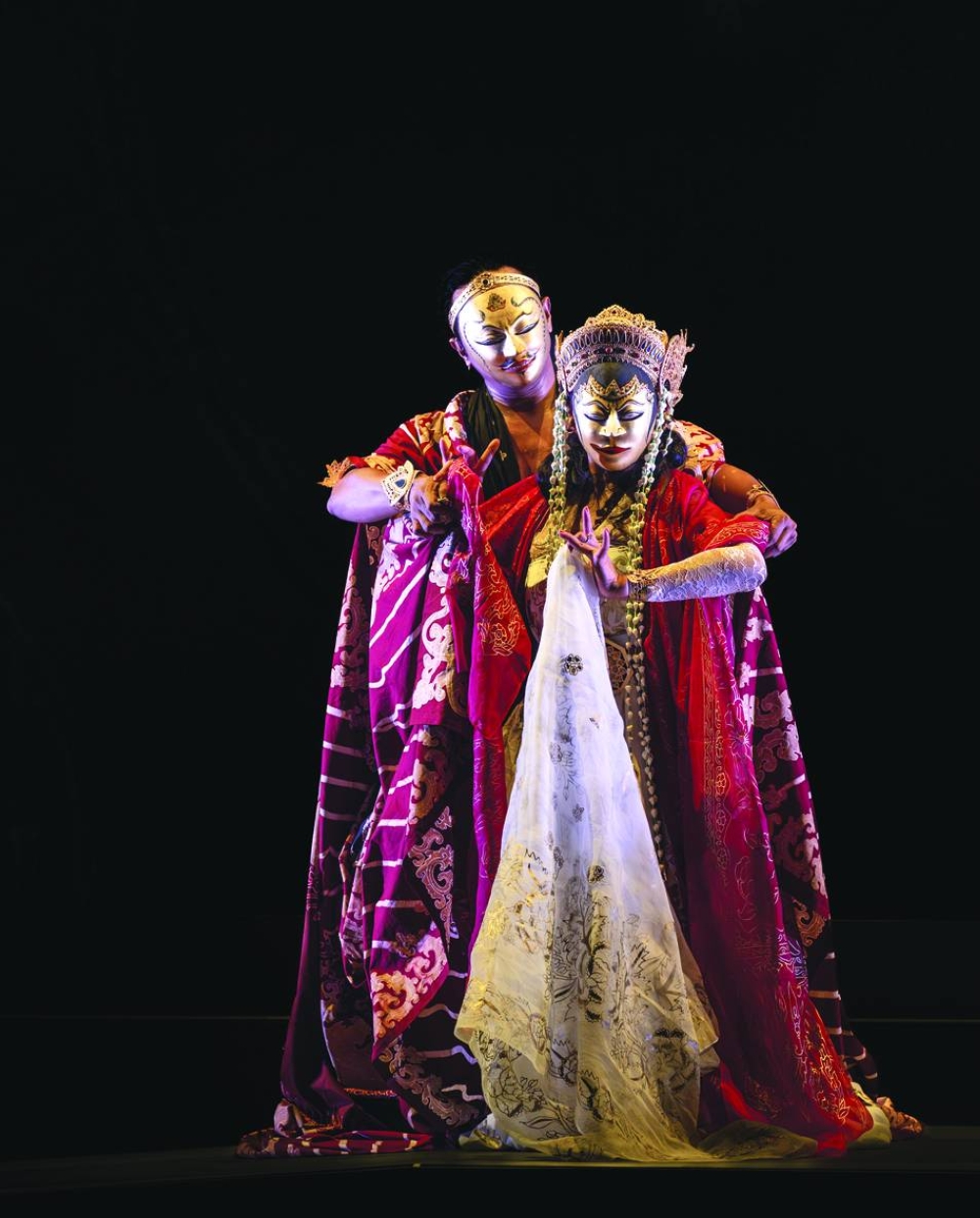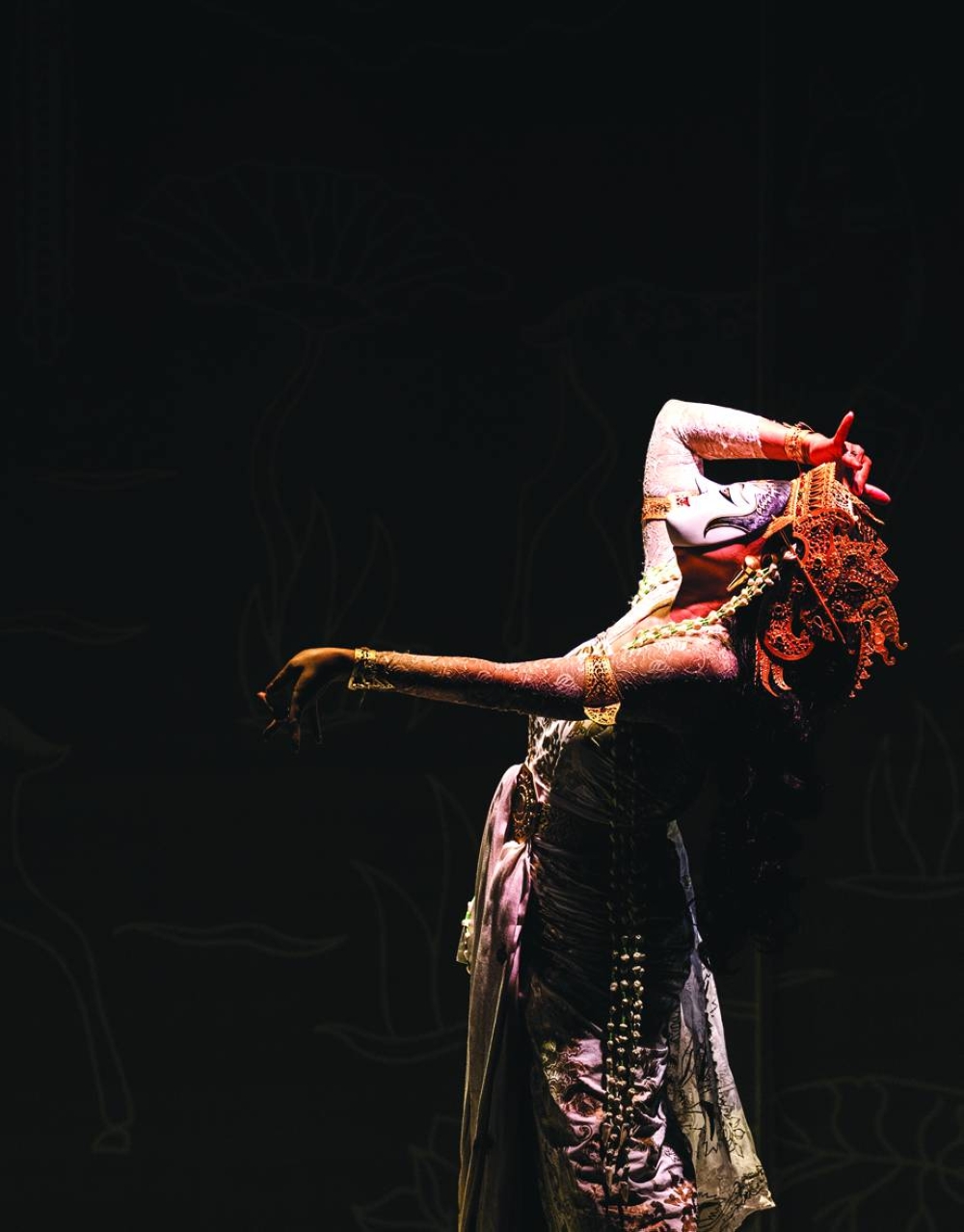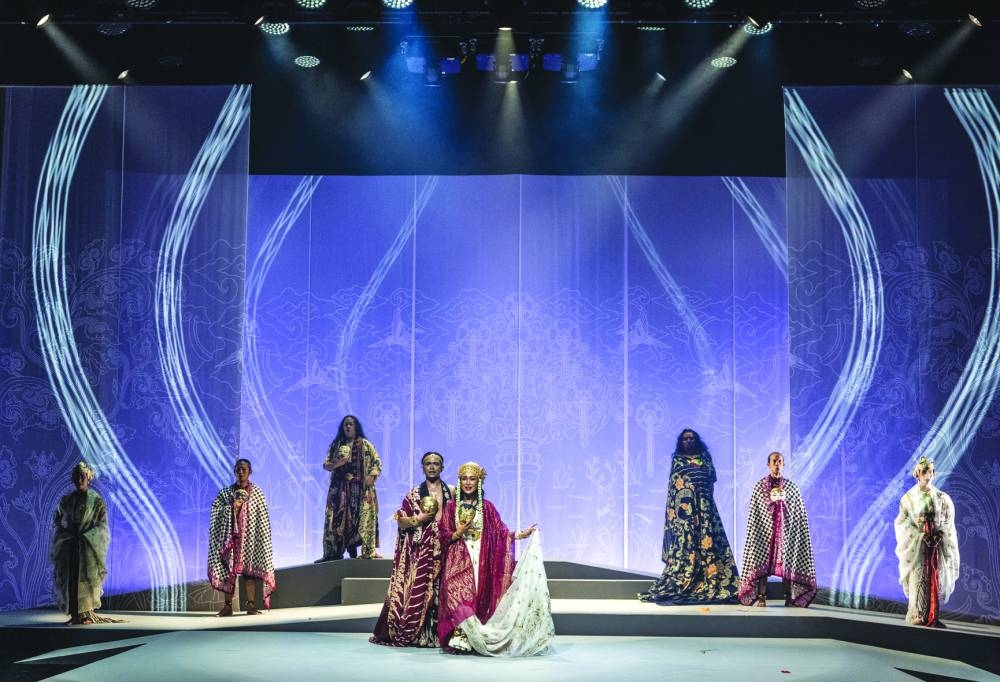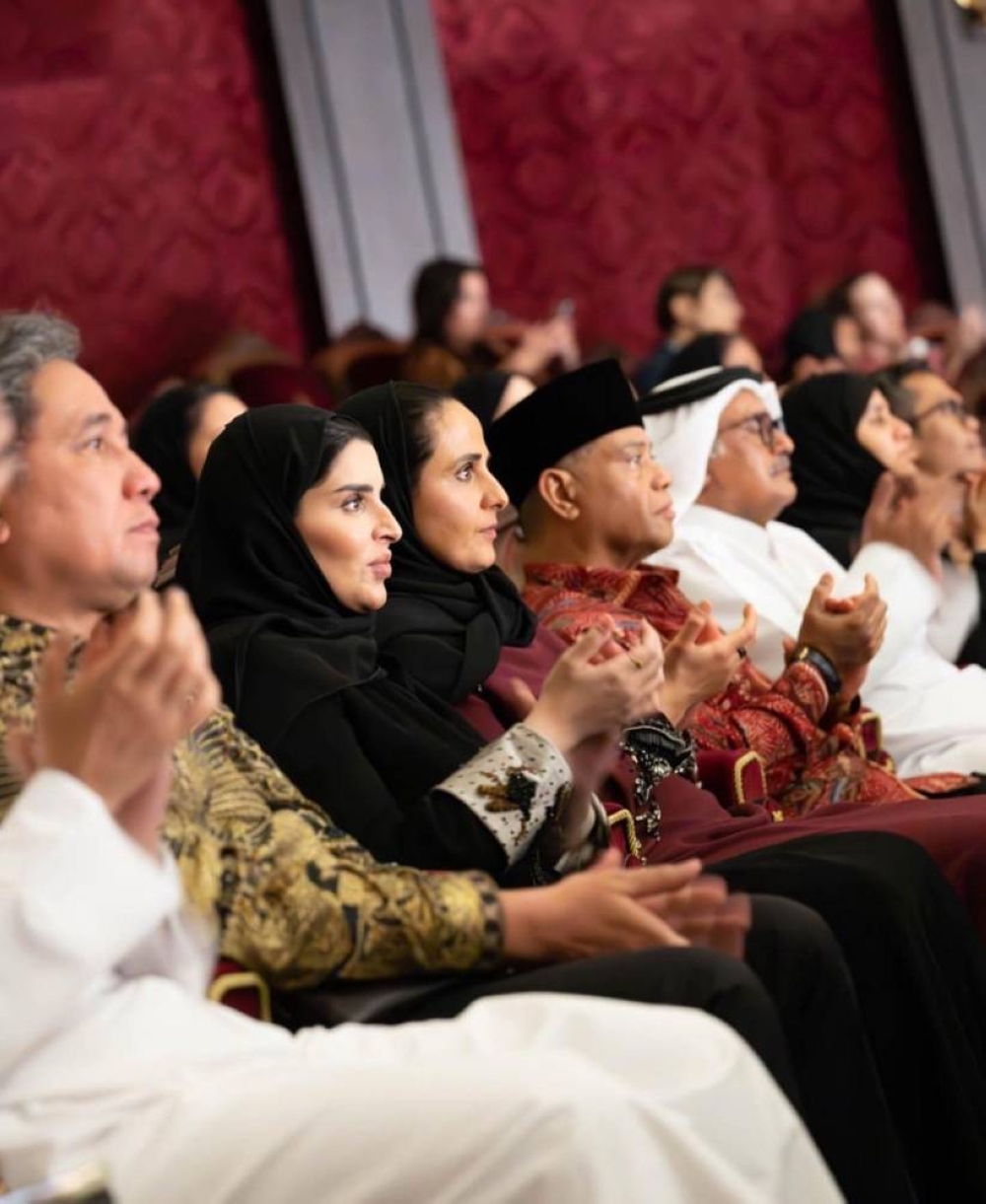An Indonesian musical performance titled *Hayati: Panji Searching for the Essence of Love* made its international debut yesterday (May 22) at Katara – the Cultural Village in Qatar.
Qatar Museums (QM) Chairperson HE Sheikha Al Mayassa bint Hamad bin Khalifa al-Thani, Indonesia's culture director-general Dr Hilmar Farid, Indonesian ambassador Ridwan Hassan and other dignitaries attended the opening night.
Directed by Rama Soeprapto, this specially commissioned production brings to life stories from Indonesian folklore, which hold a precious place as part of the world's intangible heritage, as recognised by Unesco.
The performance, which concludes tomorrow (May 24), forms part of Qatar-Indonesia Year of Culture 2023.
The director told reporters that *Hayati weaves a tale of love, self-discovery, and the true essence of life.
The central character, Panji, embarks on a quest to find his beloved Sekartaji, only to realise that in searching for love, he ultimately finds himself.
“While he is looking for Sekartaji, his love, he discovered that in looking for love, he finally found himself”, which is what life is about, Soeprapto said.
Acclaimed Indonesian performers Achmad Dipoyono and Kadek Dewi Aryani star as main characters Panji and Sekartaji, respectively.
The production, Soeprapto noted, aims to evoke a deeper understanding of life's meaning through “enchanting music, mesmerising dance, and thoughtful design”.
Bringing together a rich tapestry of sounds, the performance incorporates diverse musical instruments from across Indonesia.
Accompanied by enchanting melodies and synchronised movements, the dancers from Bali and Java showcase their skills and enthralled the audience.
In an interview, Soeprapto said that *Hayati is a reflection of life itself.
Panji symbolises the essence of man while Sekartaji represents womanhood.
The tree, Hayati, embraces their journey, symbolising the universal essence of love.
“Hayati is the tree which embraces it. The essence of love is actually the essence of life,” he stressed.
Soeprapto emphasised that the performance transcends language barriers, allowing different cultures to come together and appreciate the beauty of Indonesian culture.
As the performance unfolded at Katara, spectators were moved by the profound message conveyed through art and music.
Soeprapto said he hopes that *Hayati would serve as an ambassador of diplomacy, bridging cultural gaps and promoting understanding among people from all corners of the world.
Highlighting the significance of the venue, Soeprapto noted that Katara is a beautiful space that sets the stage for meaningful connections and unity.
He added that the debut of *Hayati in Qatar marks an important milestone, representing Indonesia's first-ever series of performances to be showcased on an international platform.
He said that understanding and connecting with people is the key to falling in love with a culture.
Saying that if *Hayati is embraced as an ambassador of unity and peace, Soeprapto expressed his enthusiasm for future opportunities to share this fascinating performance worldwide.
He said that he has already been invited to bring *Hayati to Mexico.
In a press statement, ambassador Hassan said: “Qatar and Indonesia share a lot when it comes to cultural heritage and its influence on our societies today, not least of which is the pride we have in our ancestors’ wisdom and teachings.”
Aisha Ghanem al-Attiya, director of Cultural Diplomacy for Qatar Museums, said: “*Hayati: Panji Searching for the Essence of Love* is one of this Year of Culture’s principal events.”
“We are grateful to the Indonesian ministry of education and culture, research and technology and the cast and crew for the passion that went into creating this masterpiece,” he said.
BOX:
Universal meaning behind *Hayati
“Hayati” means living, which encompasses a person’s journey through trials in the ultimate search for peace and love that enable deeper appreciation of life itself.
Originating in the East Javanese courts of the Kediri and Janggala kingdoms during the 12th century, the stories of Panji and Sekartaji were later adapted and transformed in other parts of Indonesia and the wider region.
The Panji story follows the adventures of Prince Raden Panji, who travels to various kingdoms in search of his beloved princess, Dewi Sekartaji.
The story is often used to convey moral lessons and cultural values, such as the importance of loyalty, bravery, and perseverance.
The Sekartaji story, on the other hand, centres around the character of Dewi Sekartaji, who is said to possess unparalleled beauty.
The story explores themes of love, betrayal, and the struggle for power and control.
These stories were traditionally performed as *wayang (shadow puppet) plays, accompanied by Javanese gamelan music.
Today, the central character is portrayed using different masks throughout the performance.
In Panji stories, a mask is a form of nonverbal communication that portrays the character and the personality of the central figure.
The character's traits can be recognised through the shape of the eyes, nose, and mouth.
The character of Panji can be identified by the mask worn by the performer.
The design of the mask determines whether the performer is playing an antagonist, protagonist, animal character, and so on.
The colours of the mask also convey different meanings through five colours: red, white, yellow, green and black.
Red represents courage, white represents purity, yellow symbolises joy, green means gratitude, and black represents wisdom.
Music and design masters bring ancient stories to life
The play’s musical concept seeks to transport the audience to the Majapahit era (13th–16th centuries CE), the height of artistic expression in ancient Indonesia, by combining traditional Javanese and Balinese ensemble music.
Director Rama Soeprapto said: “There have been so many versions of Panji and Sekartaji and their story over the centuries. I wanted to create a simpler version with *Hayati: Panji Searching for the Essence of Love* that audiences can understand and connect with. It has been a welcome challenge.”
Producer Bayu Pontiagust explained that *Hayati is an original show.
“What I am trying to visualise within the production is how to maintain its origins from the classic Javanese and Balinese tradition, while imbuing it with a modern touch through musical and visual elements,” he said. “I want the audience to not only experience and understand the essence of the story, but also enjoy the choreography.”
Costumes for *Hayati were designed by Era Soekamto, a household name in Indonesian fashion.
Known for her batik designs, she often takes inspiration from the ancient Mataram and Majapahit kingdoms of Indonesia and has expressed her hope that the stories she is able to tell through her batik help others learn and understand their history.
“To me, the philosophy is like the tree of life,” she explained. “When the roots are stronger, the nation will grow stronger too.”
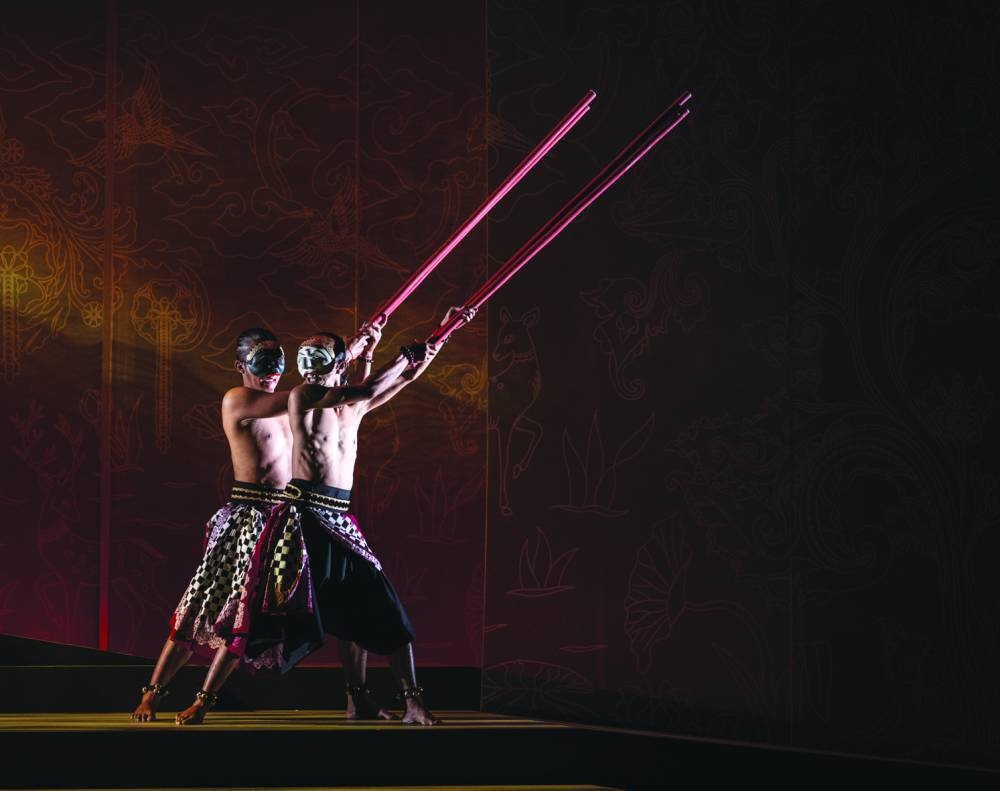
Scenes from *Hayati: Panji Searching for the Essence of Love.

